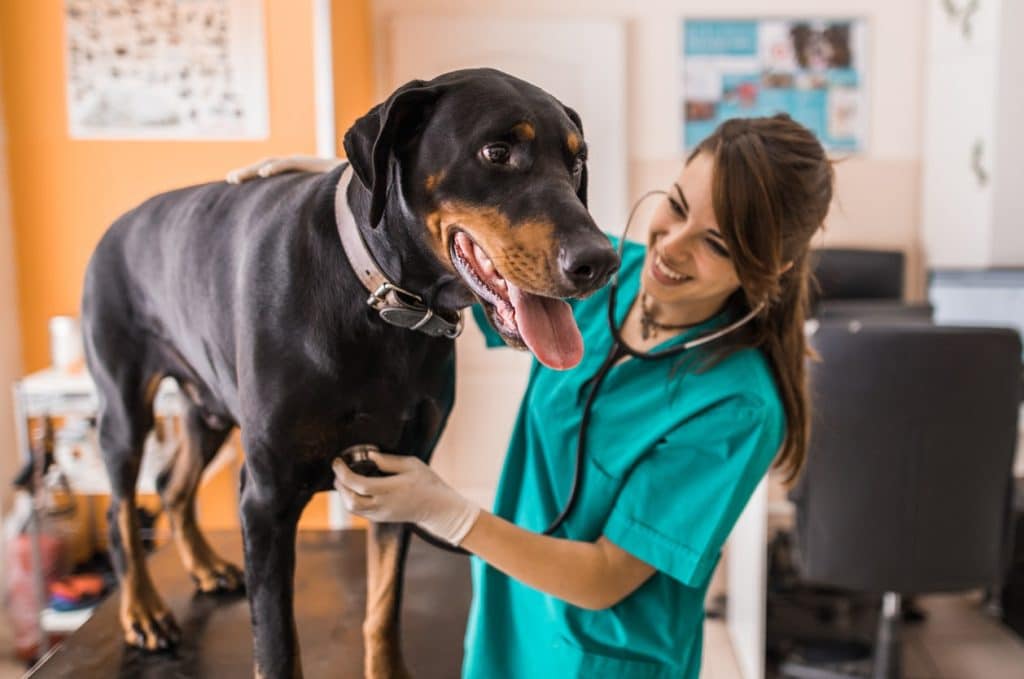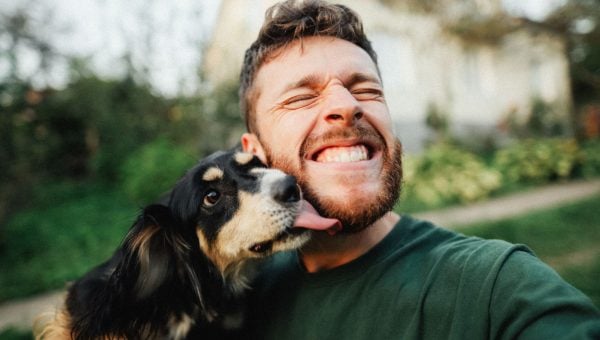Dogs are known for their signature barks and howls. If your dog loves to frequently throw their head back and howl, you might wonder if they’re sending you a message. While howling might sound soulful and sad, dogs mainly howl to communicate long distances, mark territory, express loneliness, and tell you they’re injured. Additionally, some dogs just can’t resist howling when they hear a high-pitched siren!
Below, discover why some breeds howl more than others, uncover the cause of your dog’s howling, and whether you need to see a vet.
Is Howling Instinctual?
While dogs are not directly descended from wolves, scientists think the genetics of domestic dogs and wolves diverged from an older, common ancestor. Just like wolves, this ancestor likely used howling as a form of long-distance communication.
Additionally, this ancestry means some dog breeds are more likely to howl than others. “Older breeds, such as Siberian Huskies, Alaskan Malamutes, and Basenjis, tend to howl more frequently,” says Dr. Nick Horniman, a veterinary surgeon and founder of My Pets Vet. These ancient breeds howl more due to the closer genetic ties to their ancestors.
Though howling is an instinctive behaviour, it can also be learned socially from other dogs. If puppies are exposed to social group howling, they may imitate the behaviour. If the behaviour is reinforced, the puppies might start to howl more often and into adulthood.
However, don’t confuse baying with howling! Many hound breeds, including Basset Hounds and Bloodhounds, bay to communicate to their pack that they’ve tracked down a scent.
Why Do Dogs Howl?
When trying to work out why your dog is howling, Rachel Salant, an animal behaviour specialist, recommends paying attention to the context of the howl and your dog’s body posture.
Here are some of the most common reasons dogs howl.
1. They Heard a Persistent or High-Pitched Sound
If your dog’s howling is combined with an alert posture and pricked ears, they may have heard something like a siren, mistaking the frequency of the siren for another dog howling.
However, not all dogs respond to persistent, high-pitched sounds in this way. For some dogs, the high-pitch is painful; other dogs can inherently sense that someone is in trouble. Interestingly, scientists have discovered that sirens are an effective warning signal for humans because the frequency is so similar to a dog’s howl.
2. They Want Attention
If your dog is bored, they might howl to get attention. If you respond every time your dog howls, you can inadvertently reinforce this behaviour. Other symptoms of dog boredom or attention-seeking include:
- Pacing
- Whining
- Pawing
- Destructive chewing
- Excessive digging
3. They Have Separation Anxiety
For some dogs experiencing separation anxiety, howling can be a way to try and vocalise their distress at being left alone. This is usually accompanied by other signs of separation anxiety, including:
- Whimpering
- Clinginess
- Inappropriate urination in and out of the crate
- Decreased appetite
- Sweaty paws
4. They’re Stressed Out
Like humans, dogs need to de-stress. Howling is a common way dogs release stress and tension. Loud noises, new environments, or encounters with strange people and dogs can be stressful. Besides howling, other signs of stress include trembling, yawning, or eye contact avoidance.
In some cases, howling can become a compulsive behaviour due to an environmental stressor. If you think this is the case for your dog, it’s best to seek professional help.
5. They’re Sick or in Pain
While dogs in pain act in different ways, howling can be a sign of physical discomfort. Older dogs, especially those with canine cognitive dysfunction (CCD), may howl when feeling disoriented or confused.
Watch for any signs of pain like limping, restlessness, or changes in appetite, and speak to your vet if you’re concerned.

iStock/Capuski
How To Stop Dog Howling
If you’d rather your dog didn’t howl quite so much, you may be able to reduce the noise once you’ve identified the underlying cause.
However, remember that howling is instinctive for some breeds and something they love to do. “If you decide to adopt a dog breed known to be vocal, it would be an unrealistic and unfair expectation for the dog to be silent all the time,” Salant says.
Redirect the Behaviour
Many pet owners might believe teaching their dog to speak is a good alternative to howling. However, Dr. Horniman says doing so might actually increase howling. Instead, he says it’s important to address the underlying cause of howling rather than simply teaching a command that could reinforce the behaviour.
Rather than the “speak” command, Salant recommends pet parents interrupt howling by asking for an alternative behaviour. These alternative behaviours can include sitting near you, playing with a toy, or taking a nap near you. If your dog takes to the new behaviour, make sure to offer praise, training treats, and plenty of pets.
Prioritise Bonding
If you’re concerned your dog’s howling is their way of asking for attention, think about how you can spend more time bonding together.
Some easy ways to ensure your pup loves you and knows you love them include dedicated playtime, fun training sessions, different meals and treats, and cosy cuddles.
Begin Sound Desensitisation
If howling is triggered by specific sounds, desensitisation and counterconditioning can be an effective method for reducing this behaviour.
Dr. Horniman explains that sound desensitisation involves gradually exposing the dog to the sound at a low volume paired with positive reinforcement. Over time, dogs learn to associate a previously negative sound with positive experiences, making them less likely to howl.
Here’s what sound desensitisation can look like in practice:
- Play a recording of a siren: Preferably similar to the siren that usually triggers your dog’s howling. Start at a very low volume that doesn’t cause your dog to howl.
- Observe your dog’s body language and behaviour: You want your dog to remain calm when hearing the sound at a low volume; if they’re anxious or stressed, it’s time to start again.
- Offer positive reinforcement: If your dog is calm, give them a treat or verbal praise while the sound is playing. If your dog shows a response to the noise, don’t offer a treat, but try turning the volume even lower.
- Increase the volume: Once your dog shows no response to low sound, you can increase the noise bit by bit.
- Repeat: Aim for 2-5 minutes, once or twice per day.
If you’re not confident completing this training at home, seek advice from a trusted dog trainer or behaviourist.

iStock/skynesher
When to See A Vet About Your Dog’s Howling
While howling can sometimes be pretty cute, check that your dog’s vocalisations aren’t caused by pain. “Howling is often a normal behaviour and can sometimes indicate a medical problem, especially if it’s accompanied by other symptoms, such as loss of appetite, pain, or discomfort in specific areas,” explained Dr. Horniman.
If you notice any of these symptoms along with excessive howling, schedule an appointment with your vet to rule out any underlying medical conditions.
Once your dog gets the all-clear from the vet, and if their howling isn’t causing an issue, enjoy and embrace it as an innate part of your dog’s character.





